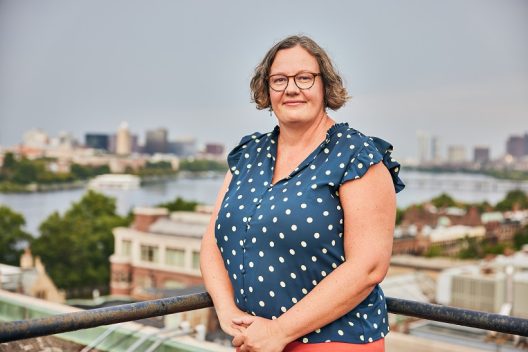SEFS alumna Lucy Hutyra awarded MacArthur “genius grant”

SEFS alumna Lucy Hutyra, an environmental ecologist studying the impacts of urbanization on environmental carbon cycle dynamics, has been named a 2023 MacArthur Fellow. The MacArthur Fellows Program recognizes people of outstanding talent and enables recipients to exercise their own creative instincts for the benefit of human society. MacArthur Fellows receive an $800,000, “no strings attached” grant to pursue their own creative, intellectual, and professional inclinations.
Hutyra earned a B.S. in Forest Ecology and Management from the UW College of Forest Resources (now the School of Environmental and Forest Sciences) in 1998. She then completed a doctoral degree from Harvard University before returning to the UW as a research scientist at the College of Built Environment in 2007. She joined the faculty of Boston University in 2009 and is currently a professor in the Department of Earth and Environment.
Hutyra is recognized for her leading-edge research on carbon cycling in cities. Using field observations, remote sensing, spatial analysis, and mathematical modeling, Hutyra measures how carbon moves between different reservoirs, like plants, soil, water, and air, in forests and urban areas. In particular, Hutyra’s lab has investigated how trees and soil in fragmented environments, such as at the edge of a forest or lining a city street, emit and absorb carbon differently and grow at different rates compared to interior forests. She found that trees in these “microenvironments” grow faster and take up carbon quicker, signifying their importance in mitigating the effects of local climate change impacts.
With a focus on advancing the livability of our communities, Hutyra has prioritized graduate education and producing actionable information for policymakers. She has worked with researchers and city leaders to standardize measurements of carbon emissions from both human and natural sources and created an app with her team to improve the efficacy of tree-planting initiatives intended to reduce urban heat. Hutyra’s work is integral to our understanding of regional greenhouse gas budgets and climate mitigation strategies, particularly as urban communities look at localized solutions.